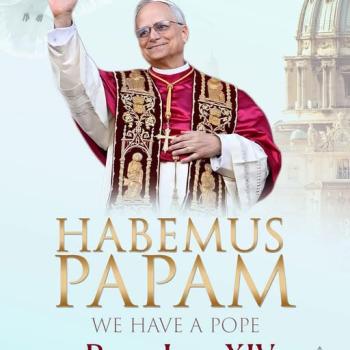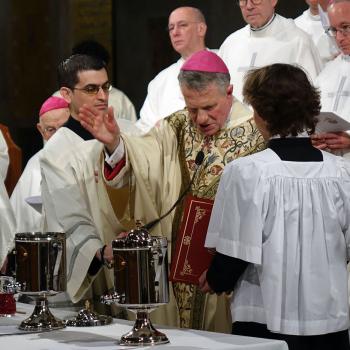Editors' Note: This article is part of the Public Square 2014 Summer Series: Conversations on Religious Trends. Read other perspectives from the Catholic community here.
Reception of Holy Communion after divorce and remarriage is one issue of discussion that will be closely watched during the Extraordinary Synod for the Family (and there is excellent coverage on that topic in this interview between Brandon Vogt and Cardinal Thomas Collins), but reform of the annulment process will likely also be touched on, and with it, some discussion on how poorly annulments are perceived by the faithful. Here Mary DeTurris Poust shares a personal memory of her own experience with what is incorrectly understood as "Catholic Divorce."
When I was going through the divorce process, a priest who was a good friend of mine suggested I get the materials and begin looking into an annulment. My first reaction: No way. As far as I was concerned, nothing in my failed four-year marriage could possibly rise to the level of annulment.
I got married in my mid-twenties, so obviously I wasn't too immature. There was no abuse or addictions or anything that might seem like an obvious reason—in my mind—for an annulment. There had even been three priests on the altar at my wedding Mass. As far as I was concerned, not only didn't I have a chance at annulment, I didn't deserve an annulment.
But he persisted. "Just look at the materials," he said. Reluctantly, I agreed. When the packet arrived at my apartment one day, I dove right in, desperate to get this "promise" over with and out of my life.
I flipped through the pages and stopped cold. There, mixed in with the usual questions about address and education and sacraments received, was a long list of questions that seemed to strike right at my core. Questions about whether there'd been a significant death in my family close to the wedding. There had. About whether I'd ever called off the wedding before finally saying, "I do." I had. About whether ours had been a long-distance courtship. It had.
On and on, as I read through the questions, I began to see that I had been approaching the idea of annulment from a mistaken and misguided place. With each nod of my head in response to a question, I realized that the Church recognized something I had not: No matter how many priests were on the altar, my ex-spouse and I had not entered into the marriage in a way that could possibly make it truly sacramental. It couldn't succeed because it had been damaged from the start.
Although I was not allowed to begin annulment proceedings until my civil divorce was final – standard operating procedure for all tribunals – I began to write my autobiography, using the guidelines provided by my archdiocese. As I reflected on my childhood, my own parents' marriage, my dating experience, my family life, and, of course, my relationship with my ex-spouse, it became clear that the idea of annulment wasn't some Catholic version of divorce, as I had originally suspected, but a thoughtful and careful process designed to peel back the layers of my life and my marriage to reveal what was—or was not—at play the day I walked down the aisle.
As soon as I was able, I submitted my paperwork and asked my aunt and my step-mother to serve as my witnesses. I went to the tribunal to give my oral testimony. I called constantly to check on its status. When the final declaration of nullity came through a year after I began, I felt a real sense of relief, elation, and closure—something my civil divorce could not provide. I felt whole.
This article first appeared in OSVNewsweekly, and is reprinted here with permission.
7/7/2014 4:00:00 AM




